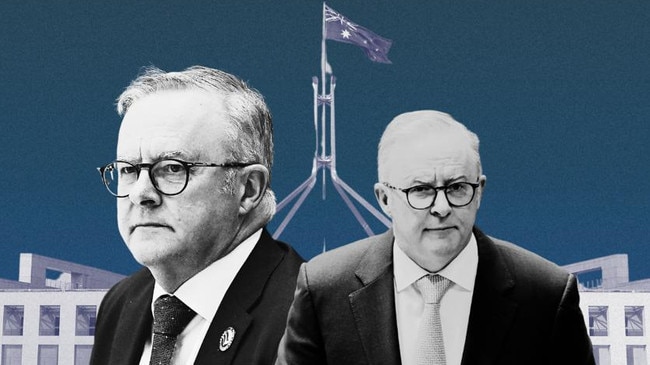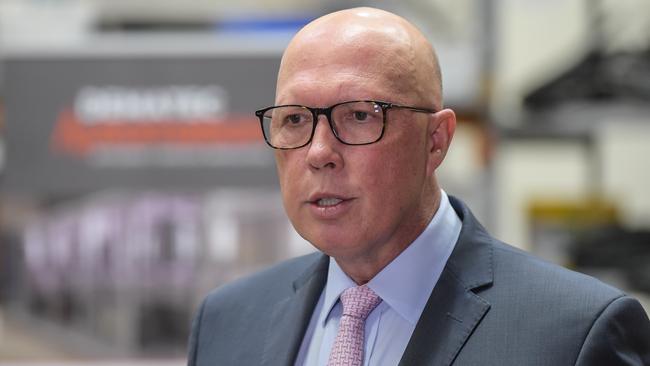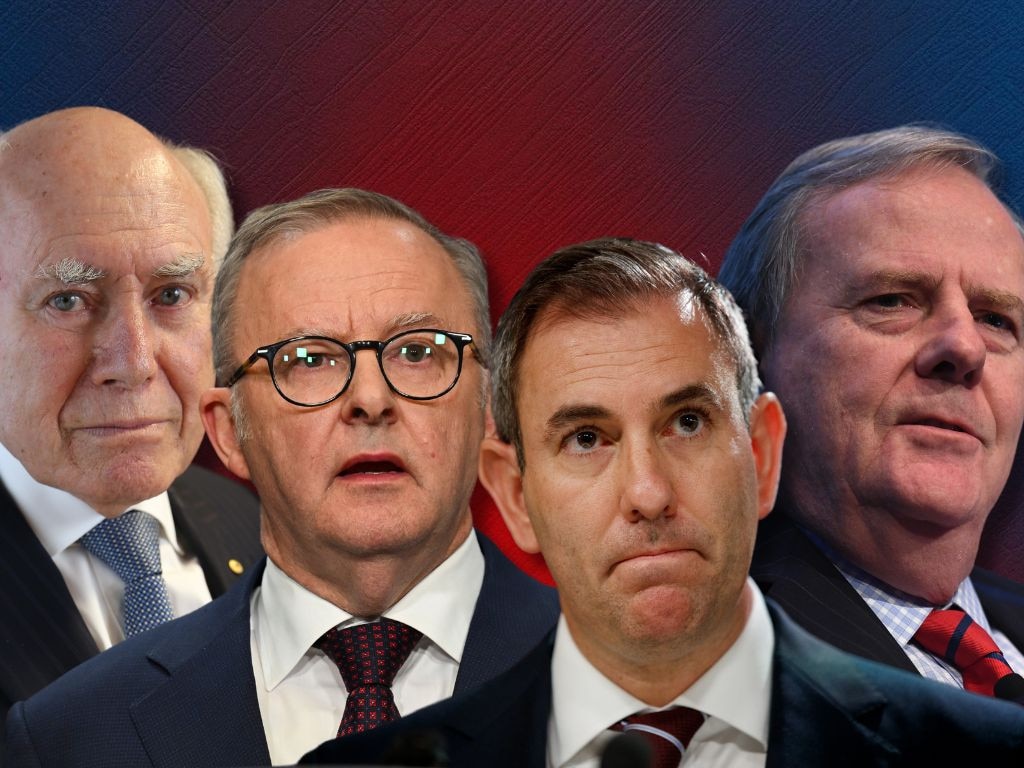
Whatever the origin, it’s good advice – which, as the record demonstrates, is not always heeded – in the lead-up to the election to be held before the end of May.
On January 8, 2024, economist and former Labor Party minister Craig Emerson began his Australian Financial Review column by stating that “political pundits are predicting a poor year for the Albanese government, but circumstances, serendipity and strategy suggest a different story”.
While conceding that “some forces shaping Australian politics … are beyond our control”, Emerson concluded by stating that “with deft economic and political management, the Albanese government can end 2024 in a strong, election-winning position”.
The various opinion polls, including the authoritative Newspoll, indicate that this is not the case. Moreover, a lack of serendipity cannot be blamed for the outcome.

Currently, some political soothsayers in our midst are predicting that the election will lead to a minority government, most likely headed by Labor. This was the apparent view expressed by the usually sensible election analyst Antony Green in an interview with ABC News Radio this week. Green may be correct. However, before engaging in suggestions, even of the vaguest kind, it is worth considering some guidelines.
In politics, precedent means nothing – unlike in the law. The fact no first-term Australian government has been defeated since 1931 – when the Joseph Lyons United Australia Party prevailed over Jim Scullin’s Labor government in a landslide – is irrelevant. For starters, this election occurred during the Depression. Moreover, there’s no Australian who voted in 1931 who is still alive.
The two-party system in Australia, which has prevailed since 1910, is not going anywhere. Not yet, anyway. After all, it is protected by Australia’s unique electoral system that combines compulsory and preferential voting. Major parties have faded or disappeared in Britain and Canada. But not in Australia or the US (as the 2024 election indicated) where different electoral systems prevail.
Independents are not invincible. It’s correct that independents who win seats from major parties are capable of serving long terms in the House of Representatives. This is partly because they are not close to government, or attempting to become part of a government, and have lots of time to spare attending local community events. Independents have been particularly successful in winning seats from the Coalition. But not all continued in politics.
In 2010, NSW independents Tony Windsor and Rob Oakeshott (both of whom had backgrounds in the Nationals) supported Labor prime minister Julia Gillard to form a minority government. Neither stood again in the 2013 election when the Coalition under Tony Abbott won both seats in a landslide victory.
In 2022, the teal independents won six seats from the Liberal Party: Curtin in Western Australia; Goldstein and Kooyong in Victoria; and Mackellar, Wentworth and North Sydney in NSW.
All except Wentworth are on relatively small margins and all seats were won on Labor and/or Greens preferences. To the extent that Anthony Albanese and his government are unpopular, some teals will be subjected to Peter Dutton’s line that a vote for the teals is a vote for Labor.

The Greens political party and a Muslim political party are unlikely to inherit the Australian political earth – in the short term, at least. Despite much attention in large sections of the mainstream media, the Greens, under Adam Bandt’s leadership, are not making significant gains.
Indeed, a recent Resolve poll in Nine newspapers suggests that some younger voters have moved their support away from the Greens and towards Labor and the Coalition in recent months.
The Opposition Leader has called on the Prime Minister to demonstrate his opposition to anti-Semitism “flourishing within the Greens political party” and put the Greens last on Labor’s how-to-vote cards. Albanese has not reciprocated. Yet, in the long term, the Greens are a greater threat to Labor than the Coalition.
Obviously, not all Australian Muslims hold the same political views. Most vote Labor. But some support the Coalition. Even if all Muslims voted for a Muslim political party there would not be enough voters to elect a Muslim political party MP in western Sydney. As mentioned, the Coalition is likely to put Labor ahead of the Greens and/or a Muslim party in western Sydney seats such as Blaxland, McMahon and Watson.
In view of this, it is unlikely that Labor will lose seats to the Greens or a Muslim party in its safest Sydney seats.
Popularity does not matter all the time. As I have argued consistently, the four Liberals who led their party to victory from opposition were not popular. And all were politically conservative at the time. The reference is to Robert Menzies (1949), Malcolm Fraser (1975), John Howard (1996) and Abbott (2013).
As is widely known, at times of economic stress more voters in democracies are personally focused on the economy. The Albanese government’s particular problem does not merely focus on inflation and interest rates.
As research undertaken for Liberal senator Dean Smith by the Commonwealth Parliamentary Library reveals, costs for basic products such as insurance, gas, eggs, tobacco and vehicle spare parts have increased by more than 20 per cent between March 2022 and the September 2024 financial quarter. This is well above the underlying rate of inflation.
The task of the Albanese government is to convince voters that their economic lot will improve. It’s a difficult but not impossible task. Something that is clearly not understood by The Economist. After all, its coverage of Australia in its The World Ahead Report 2025 states that “given disarray in the conservative opposition, the government is set to win a new term in the lower house elections”.
There is no evidence that the Coalition is in disarray. And no certainty that the Albanese government will be returned with the support of the Greens and independents.
Making predictions about the future invariably carries with it the potential for reputational damage.







I am fond of writing words to the effect “as the saying goes it’s unwise to make predictions about the future”. A reader advises that the maxim has many parents but it’s probably a proverb of an unknown Dane translated into English.